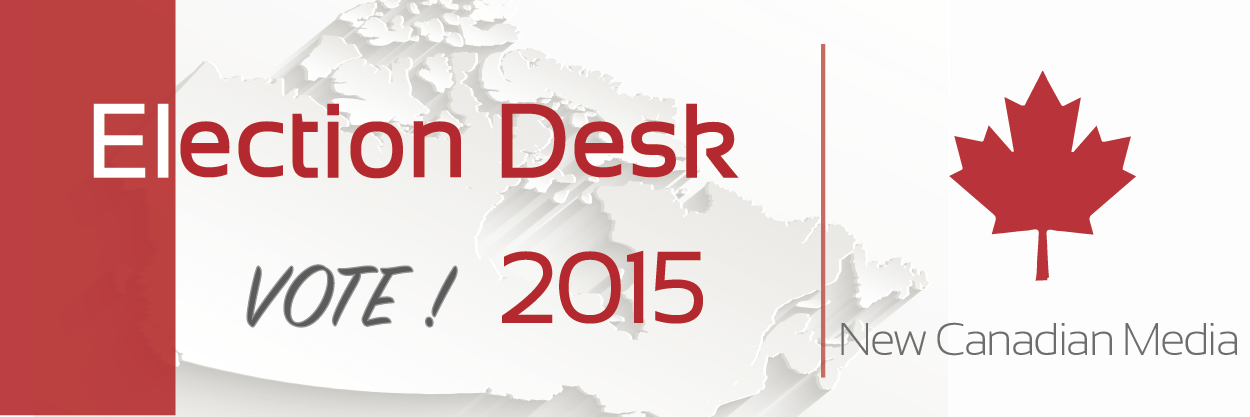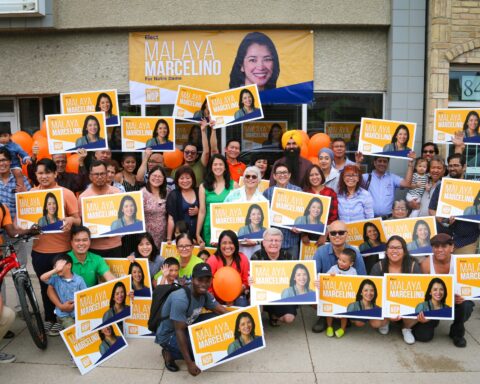Ever since Dr. Rey Pagtakhan served as Member of Parliament from 1988 to 2004, first from Winnipeg North and then Winnipeg North – St. Paul, no one of Filipino descent has been elected to the House of Commons.
But the drought may be about to end as at least five candidates from the community are running in October’s federal election.
“They’re in for a tough battle,” says Aprodicio Laquian, former University of British Columbia (UBC) professor and author of Seeking a Better Life Abroad: A Study of Filipinos in Canada.
“Filipinos in general don’t vote for other Filipinos just because of shared heritage. They’re a lot more critical, their network allows them to easily identify who’s running … and if they’re running for their own selfish interest, they don’t vote.”
Laquian says that despite an estimated 700,000 Canadian residents tracing their ancestry back to the Philippines, there is also no real “Filipino town” or single riding in Canada where they make up a big chunk of the population.
Winnipeg North, the riding that first sent Pagtakhan to Parliament, is the exception as an estimated 40 per cent of the population is of Filipino descent.
Levy Abad, a human rights activist and singer/songwriter of Filipino heritage, is contesting there under the New Democrat banner and sees the demographic advantage only as a leg-up.
“[A] Filipino running for office should not only depend on the support of one group but should engage all communities.”
“Although it helps to have the support of the Filipino community, I think a Filipino running for office should not only depend on the support of one group but should engage all communities,” says Abad.
Pagtakhan says ethnicity is only one of many factors. “While a particular community will likely support a candidate and party if they champion policies dear to their hearts, their combined credibility and qualities will also be considered.”
Abad believes that his job as a multicultural outreach officer in Manitoba’s Ministry of Multiculturalism and Literacy has prepared him for the run. He says he knows the issues affecting all groups in his riding and would be their collective voice in Parliament.
Facing negativity
In Vancouver Kingsway, a riding with half its population made up of visible minority groups, Conservative party candidate Francisco “Jojo” Quimpo does not have any advantage because of his ethnicity.
Quimpo will compete for votes of Chinese-Canadians who are the dominant group at 43 per cent of the population followed by fellow Filipino-Canadians at 11 per cent.
“I am running not just because I’m a Filipino. I’m an immigrant; my story is many other people’s story,” says Quimpo. “I can relate with many, I know the issues and challenges.”
“This is about the future of Canada, not only Filipinos, but also all Canadians.”
A community leader, he is best known for organizing the annual Pinoy Fiesta that celebrates Philippine culture.
But ever since announcing his intention to run, he’s had his share of critics from within the community; some have even flipped on an earlier promise to support him by putting up lawn signs of his NDP rival, incumbent MP Don Davies.
Quimpo believes Filipinos as a group are turned off by politics due to their negative experience of the process back home. He wants the community to participate more in politics and to realize its positive impact here in Canada.
“To be comfortable with this kind of electoral process … you have to be passionate and committed with the values you represent to the people so they can understand. This is about the future of Canada, not only Filipinos, but also all Canadians,” says Quimpo.
Old-style Philippine politics
Nevertheless, Quimpo says the community members’ historical dislike for politics does not prevent them from resorting to old-style Philippine politics by seeking favours in return for votes.
Since starting his campaign, he’s received requests for assistance ranging from helping a sick relative back home to expediting immigration applications.
“I received so many questions on why they need to pay when I’m the one asking for their support!”
“I was running for the party nomination and was asking for kababayans [fellow Filipinos] to pay and become a member of the party so they could vote for me … I received so many questions on why they need to pay when I’m the one asking for their support!”
In Winnipeg Abad says he’s heard of similar stories during his campaign, but has no experience of people asking for favours outright.
“The residents of Winnipeg North have a lot of concerns like poverty, crime, housing that should be properly addressed and offering paltry solutions will not help.”
Fielding Filipino candidates
In Mt. Royal, Quebec, basketball coach Mario Rimbao is hoping residents will see him beyond sports.
The challenge of finding available daycare prompted him to enter politics under the NDP banner. He wants to do more for immigrants with a focus on family reunification.
“We need to be heard; this is the time. We’re trying to make history together,” says Rimbao, who has no demographic advantage in a riding where over 60 per cent of the population is Jewish and white.
Rimbao’s only consolation from an ethnic vote perspective is that at over nine per cent, Filipinos lead the rest of the minority groups in a riding seen as a Liberal bastion.
[P]arties are still trying to figure out how to tap into [the Filipino] voter group.
Also bereft of any ethnic affinity advantage is Julius Tiangson who hopes his experience serving different communities will make him the Conservative MP for the Mississauga Centre riding with a large immigrant population.
An active community leader, Tiangson is co-founder of the Gateway Centre for New Canadians, which focuses on the economic integration of newcomers.
The only independent candidate in the running is Jesus “Jayjay” Cosico from Nepean, Ottawa. A former politician in the Philippines, he seeks to be the voice for “pro-life” issues in Parliament.
With a community far from mature in understanding Canada’s political process, Laquian says parties are still trying to figure out how to tap into this voter group. Fielding Filipino candidates is just one of the arrows in their quivers.
Pagtakhan believes Filipino Canadians are actually far more interested and involved in Canadian politics than the overall population.
“We can persuade even more to participate when we succeed in lending credibility to the nobility of politics as a means to make salutary differences in the life of fellow Canadians,” he says, adding, “Yes, it is a tall order.”
Published in partnership with Asian Pacific Post




